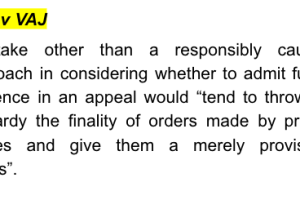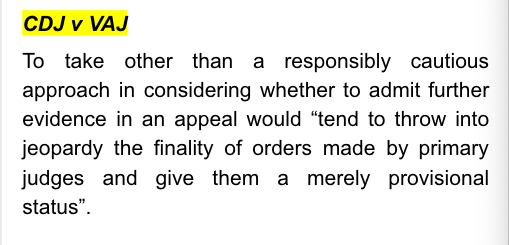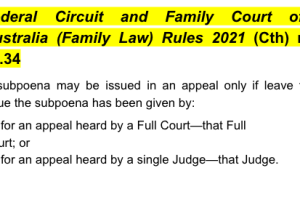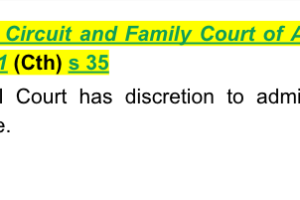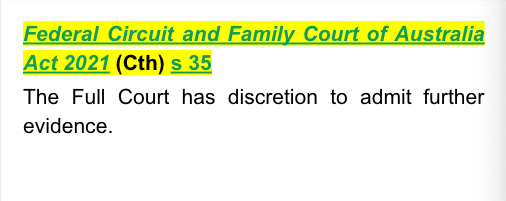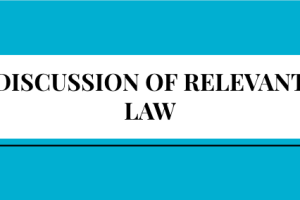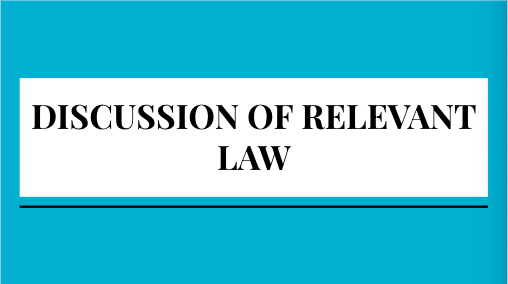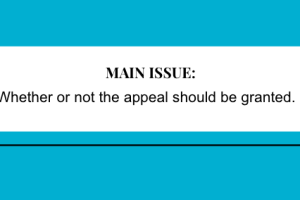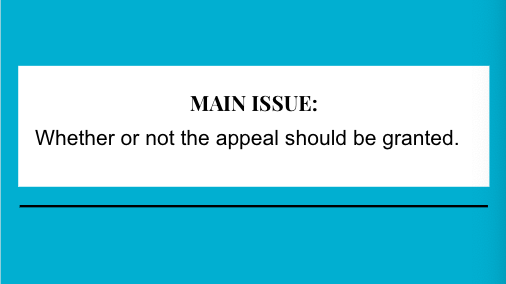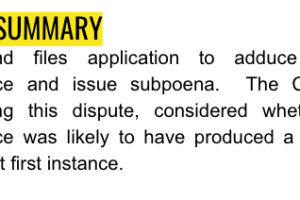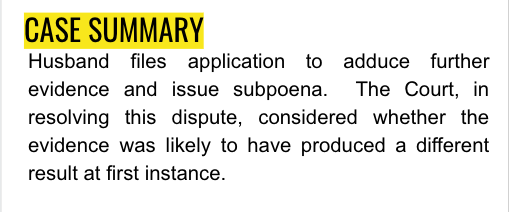- · 4853 friends
Husband Seeks Presentation of Further Evidence

Hardwick & Hardwick [2022] FedCFamC1A 179 (25 October 2022)

Husband files application to adduce further evidence and issue subpoena. The Court, in resolving this dispute, considered whether the evidence was likely to have produced a different result at first instance.

Facts
On 27 May 2022, a judge of the Federal Circuit and Family Court of Australia (Division 2) made orders that, pursuant to s 44(3) of the Family Law Act 1975 (Cth) (“the Act”), the respondent wife be granted leave to proceed with an application for property orders pursuant to Pt VIII of the Act.
The appellant seeks leave to appeal that decision. That application for leave is listed for hearing next Tuesday on 1 November 2022.
This decision concerns an Application in an Appeal, filed by the appellant husband on 17 October 2022, seeking leave to issue a subpoena to the Queensland Police Service with a view to adduce further evidence in respect of the appeal. That further evidence is not identified, other than in the context of documents which the appellant anticipates will be produced by the Queensland Police Service pursuant to a subpoena that is attached to the Application in an Appeal.
The documentation sought to be produced by that subpoena relates to the interactions of both parties with the Queensland Police Service and the Queensland criminal justice system. The orders sought in the Application in the Appeal are as follows: leave to adduce further evidence by the way of a new subpoena from the Queensland Police Service and to have the Subpoena material available for viewing on or before 27 October 2022 in the Brisbane chambers.
The appellant’s affidavit, filed 17 October 2022, filed in support of the Application in an Appeal does not specifically identify the ground of appeal to which the application relates. Attached to the appellant’s Application in an Appeal is the proposed subpoena which the appellant has, by way of oral submission, advised the Court that he seeks leave to issue. It is clear that the appellant is seeking the production of documentation, much of which, with due and proper enquiry, would have been available to him to present at the hearing before the primary judge. That is not, however, central to the Court's decision.

Issue
Whether or not the appeal should be granted.

Applicable law

(a) for an appeal heard by a Full Court—that Full Court; or
(b) for an appeal heard by a single Judge—that Judge.

Analysis
The appellant has failed to establish that the admission of this further evidence was likely to have changed the outcome of the case at first instance. Paragraph 8 of the appellant’s affidavit makes it clear that he is seeking to adduce the evidence in order to establish that “any health issues the applicant suffers are not from domestic violence as she alleged, however are from excessive use of prescription drugs.” At paragraph 24 of the appellant’s trial affidavit, filed in respect to the primary proceedings on 30 March 2022, the appellant acknowledged that “[the respondent] does have significant mental health problems”. Given that admission, it can reasonably be inferred that the reference to health issues is a reference to mental health issues.
It is unlikely that the evidence, sought from the Queensland Police Service, would be admissible to establish the nature of the respondent’s mental health condition, or the cause(s) of that condition. These are property proceedings and the rules of evidence apply. The primary judge was simply required to determine whether the mother’s challenge with mental health, which was an uncontroversial issue before her, was a justifiable reason for the delay. Her Honour was not required to address the issue of causation.
Conclusion
The appellant’s Application in an Appeal filed 17 October 2022 is dismissed. The issue of costs in respect to the Application in an Appeal will be considered in the appeal.



